Jun 06, 21 · 1/04/11 · Read "Increasing awareness of expressed emotion in schizophrenia an evaluation of a staff training session, Journal of Psychiatric & Mental Health Nursing" on DeepDyve, the largest online rental service for scholarly research with thousands of academic publications available atExpressed Emotion Page 3 of 7 Second Stage in Expressive Emotion Evaluations AJan 01, 12 · The expressed emotion (EE) is considered to be an adverse family environment, which includes the quality of interaction patterns and nature of family relationships among the family caregivers and patients of schizophrenia and other psychiatric disorders Influence of EE has been found to be one of the robust predictors of relapse in schizophreniaMay 27, 21 · Family Expressed Emotion Toward Relatives with Psychosis and Schizophrenia Release Date January 17, 17 Definition A questionnaire to assess expressed emotion status of relatives of patients with mental illness Purpose This measure can be used to assess expressed emotion, or attitudes and behavior patterns, of relatives toward mental
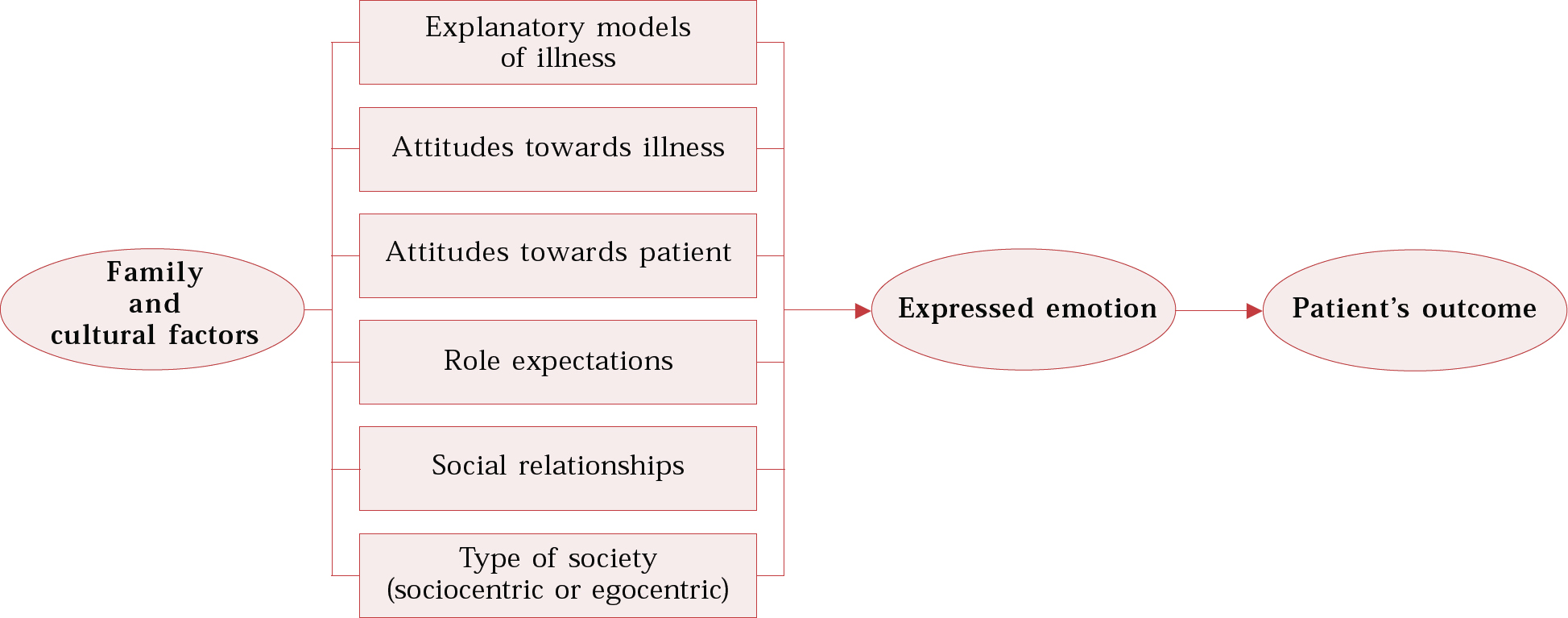
Expressed Emotion Across Cultures Advances In Psychiatric Treatment Cambridge Core
Expressed emotion schizophrenia evaluation
Expressed emotion schizophrenia evaluation-Oct 02, 13 · Expressed Emotions Niharika Thakkar MA, NET, MBPsS, Clinical Psychology Slideshare uses cookies to improve functionality and performance, and to provide you with relevant advertising If you continue browsing the site, you agree to the use of cookies on this websiteNov 07, · High expressed emotion (EE) in a patient's family is a known risk factor of relapse in schizophrenia The three components of high EE – criticism, hostility and emotional overinvolvement – were developed through a datadriven approach and a focus on overt abrasive behaviours The influence of covert abrasive behaviours has not been explored




Guilt Shame And Expressed Emotion In Carers Of People With Long Term Mental Health Difficulties A Systematic Review Sciencedirect
We compared the ratings of EE between Caucasian (N = 17) and MexicanAmerican (N = 44) patients with schizophrenia or schizoaffective disorder and their key relatives using the level of expressed emotion (LEE) scale (paper and pencil instrument rated by the patient and relative separately) and the Five Minute Speech Sample (observational experimenter rated)Arch Gen Psychiatry 1998;Kopelowicz A, Zarate R, Gonzalez V, Lopez SR, Ortega P, Obregon N such as educational sessions to increase awareness about and Mintz J Evaluation of expressed emotion in schizophrenia a symptoms of schizophrenia and low EE of caregivers comparison of
Jan 03, 12 · Although expressed emotion rarely results in the onset of schizophrenia many psychologists, for example Kalafi and Torabi, agree that high EE can result in the relapse back into schizophrenia of a recovering patient This could be explained by the high EE resulting in high stress levels Evaluation of family relationshipsJun 01, 1998 · BackgroundExpressed emotion (EE) is a measure of the family environment that has been demonstrated to be a reliable psychosocial predictor of relapse in schizop Our website uses cookies to enhance your experience By continuing to use our site, or clicking "Continue," you are agreeing to our Cookie Policy ContinueExpressed emotion is a family communication style that involves criticism, hostility and emotional overinvolvement High levels of this may influence relapse rates, or the onset of schizophrenia in a vulnerable person
Are Communication Deviance and Expressed Emotion Related to Family History of Psychiatric Disorders in Schizophrenia?Expressed emotion and relapse of Psychopathology Annual Review of Clinical Psychology, 3, Hooley, J M Early research (Brown et al, 1958) of comparatively low quality had found that schizophrenic patients, (but not other patients) who lived with siblings or by themselves in rented rooms seemed to stay out of the _________ longerSchizophrenia Bulletin 28(4), pp Vaughn, C, & Leff, J (1976) The measurement of expressed emotion in the families of psychiatric patients British Journal of Social and Clinical Psychology, 15,




Expressed Emotion And Relapse Of Schizophrenia In Hong Kong




Pdf Expressed Emotion In Schizophrenia An Overview
Aug 31, 1996 · The systematic review by Mari and Streiner of family interventions for people with schizophrenia,1 abstracted in a recent issue of EvidenceBased Medicine,2 confirms what mental health researchers have suspected for some time3—that such interventions reduce relapse rates, rehospitalisation, and costs of treatment and also increase compliance with medication This isExpressed Emotion and Schizophrenia, (Vaughn and Leff, 1976) Evidence for particular differences in family relationships as a cause of schizophrenia is fairly weakEXPRESSED EMOTION AND SCHIZOPHRENIA 391 STUDIES OF SCHIZOPHRENIA AND "EXPRESSED EMOTION" Originated in England by sociologist George Brown and his col leagues, "expressed emotion" (or EE) has come to refer specifically to criticism, hostility, and overinvolvement expressed by close kin toward a relative who suffers from schizophrenic illness




Testing The Psychometric Properties Of A Chinese Version Of The Level Of Expressed Emotion Scale




Psychopathology Paper 3 Schizophrenia What Do You Need
A diathesisstress conceptualization of expressed emotion and clinical outcome JM Hooley, IH Gotlib Applied and Preventive Psychology 9 (3), , 00 262 00 Measuring expressed emotion An evaluation of the shortcuts JM Hooley, HAJan 04, 02 · INTRODUCTION Expressed emotion (EE) is considered an important psychosocial factor that influences the course of psychiatric illness 1, 2 Many studies have reported a correlation between the relapse of schizophrenic patients and a high‐EE environment in their families 3, 4 Recent EE studies have investigated the clinical implications of EE in various other illnesses, suchDec 15, · This makes patients and their families feel pretty helpless A schizophrenia diagnosis often triggers a sense that "all is lost" and neither the patient nor the family has any control over the illness Thanks to a number of studies in the field of expressed emotion (EE), we now know that medication isn't the only option
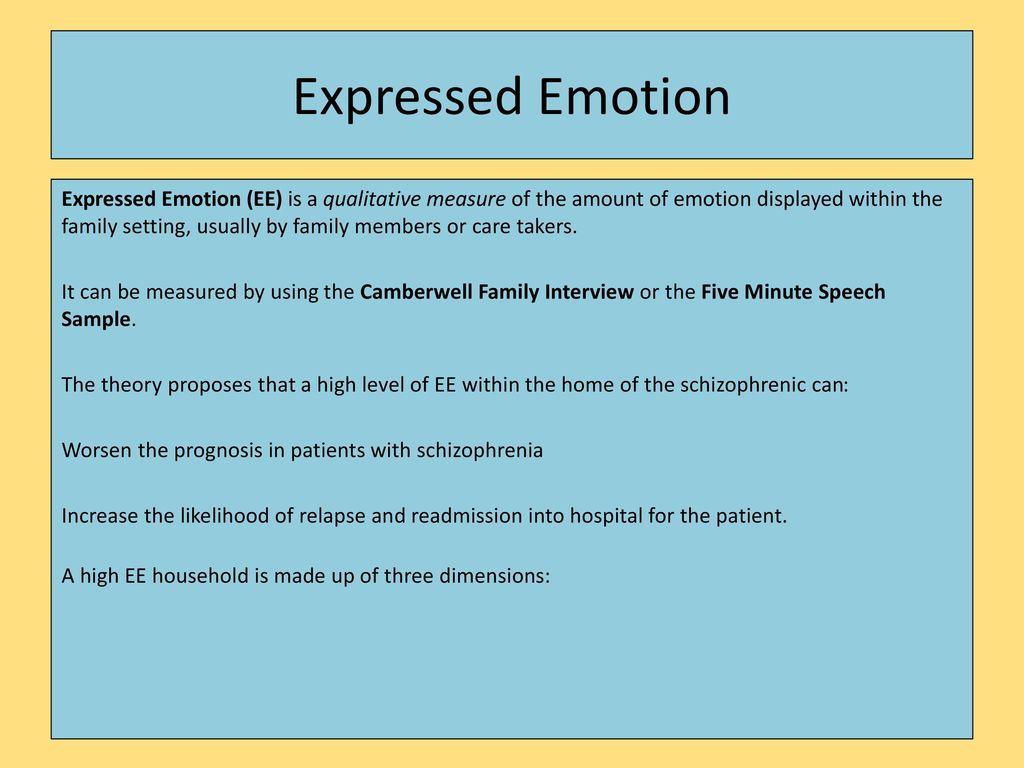



Paper 3 Option Schizophrenia Ppt Download




Guilt Shame And Expressed Emotion In Carers Of People With Long Term Mental Health Difficulties A Systematic Review Sciencedirect
The expected primary outcomes were improvement in the level of expressed emotion (criticism and overinvolvement), burden and family functioning in patients with bipolar disorder and schizophrenia exposed to two interventions to be compared, traditional vs multimodalNov 07, · Background High expressed emotion (EE) in a patient's family is a known risk factor of relapse in schizophrenia The three components of high EE criticism, hostility and emotional overinvolvement were developed through a datadriven approach and a focus on overt abrasive behavioursMeasuring Expressed Emotion An Evaluation of the Shortcuts Jill M Hooley and Holly A Parker Harvard University The construct of expressed emotion (EE) is a highly reliable and valid predictor of poor marks (six or more in the case of schizophrenia), makes any remark that is rated as hostile, or shows evidence of marked
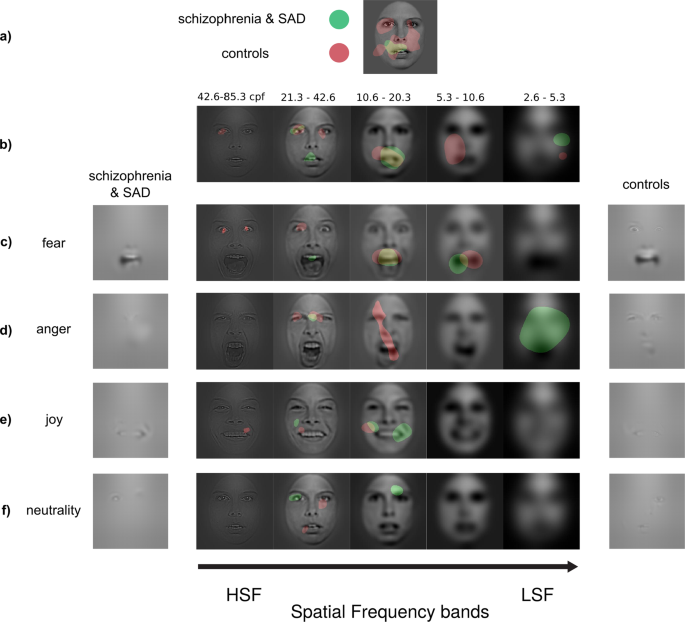



Abnormal Visual Representations Associated With Confusion Of Perceived Facial Expression In Schizophrenia With Social Anxiety Disorder Npj Schizophrenia
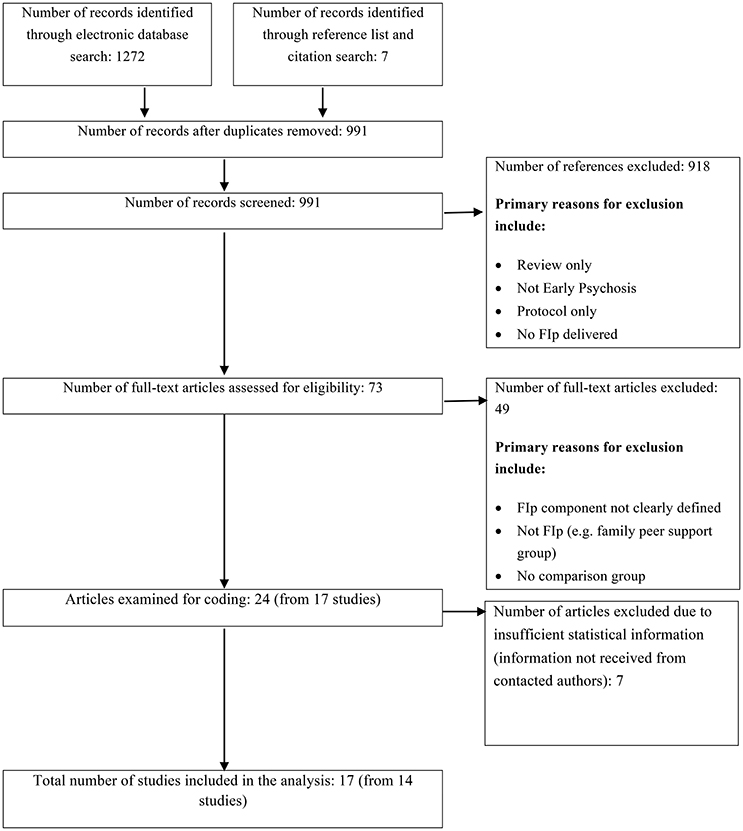



Frontiers Do Family Interventions Improve Outcomes In Early Psychosis A Systematic Review And Meta Analysis Psychology
Assignment 6 Outline and evaluate one or more psychological explanations for schizophrenia In your evaluation you should refer to research evidence Many people perceive Schzophenia (sz) as a personality disorder relating to a split personality This interepratation could be because in Greek the name translates as skhizen (to split) and phrenEmotional over Involvement, Warmth and Positive Regard 4 It is a significant feature of the family environment that has been found to predict relapse in a wide range of mental disorders 5 Expressed emotion has been studied across various psychiatric disorders such as SchizophreniaExpressed emotion, critical comments, hostility and emotional over involvement have been shown to be most predictive of relapse 1 Expressed emotion can be rated as 'high' or 'low' Most studies support the hypothesis that high expressed emotion predicts relapse of schizophrenia 2 Brown and colleagues studied relapse rates of people in




Expressed Emotion And Relapse Of Schizophrenia In Hong Kong




Hypothesized Relationship Among Expressed Emotion Ee Schizophrenic Download Scientific Diagram
Apr 07, 13 · EXPRESSED EMOTION (EE) Negative emotions that are expressed by family members to the person with a mental or emotional disorder EXPRESSED EMOTION (EE) "Joe's family used expressed emotion towards his mental illness" Cite this page N, Pam MS, "EXPRESSED EMOTION (EE)," in PsychologyDictionaryorg, April 7, 13, httpsMay 01, 02 · We compared the ratings of EE between Caucasian (N =17) and MexicanAmerican (N=44) patients with schizophrenia or schizoaffective disorder and their key relatives using the level of expressed emotion (LEE) scale (paper and pencil instrument rated by the patient and relative separately) and the Five Minute Speech Sample (observational experimenter rated)Expressed emotion of families of people with schizophrenia has been commonly used in Western countries to evaluate the effect of family intervention Major limitations of the traditional assessment tools for expressed emotion such as the Camberwell Family Interview Schedule include the lengthy time required for their




Coping Strategies For Oral Health Problems By People With Schizophrenia




Jcm Free Full Text Reduction Of High Expressed Emotion And Treatment Outcomes In Anorexia Nervosa Caregivers And Adolescents Perspective Html
The construct of expressed emotion (EE) is a highly reliable and valid predictor of poor clinical outcomes in patients with major psychopathology Patients are at early risk for relapse if they live with family members who are classified as high in EE55 (6) (ISSN X) BACKGROUND Expressed emotion (EE) is a measure of the family environment that has been demonstrated to be a reliable psychosocial predictor of relapse in schizophrenia However, in recent years some prominent nonreplications of the EErelapse relationship have been publishedHere I briefly discuss two published papers on the effects of expressed emotion and the impact it has on people with the mental illness Schizophrenia
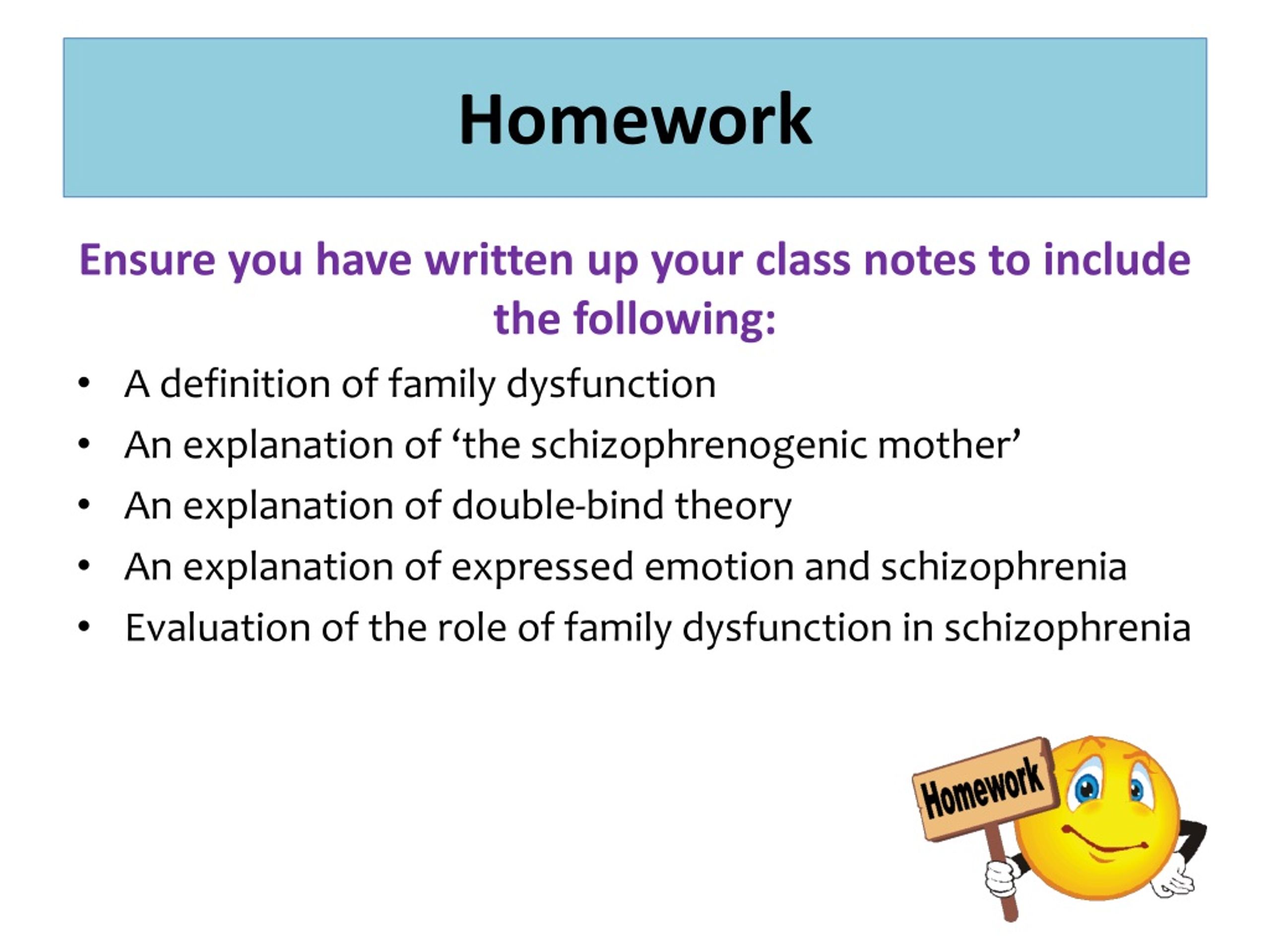



Ppt Psychological Explanations For Schizophrenia 1 Powerpoint Presentation Id




Effect Of Caregivers Expressed Emotion On The Care Burden And Ppa
Schizophrenia is a longstanding condition and most patients experience multiple relapse in the course of the condition High expressed emotion (HEE) has been found to be a predictor of relapse This metaanalysis and metaregression examined the association of global EE and relapse specifically focusing on timing of relapse and EE domainsExpressed emotion (EE), a qualitative measure of the 'amount' of emotion displayed, typically in the family setting, usually by a family or care takers Theoretically, a high level of EE in the home can worsen the prognosis in patients with mental illness,(Brown et al, 1962, 1972) or act as a potential risk factor (JR Asarnow, M Tompson, S Woo, DP CantwellThe expressed emotion (EE) is considered to be an adverse family environment, which includes the quality of interaction patterns and nature of family relationships among the family caregivers and patients of schizophrenia and other psychiatric disorders Influence of EE has been found to be one of the robust predictors of relapse in schizophrenia




Hypothesized Relationship Among Expressed Emotion Ee Schizophrenic Download Scientific Diagram
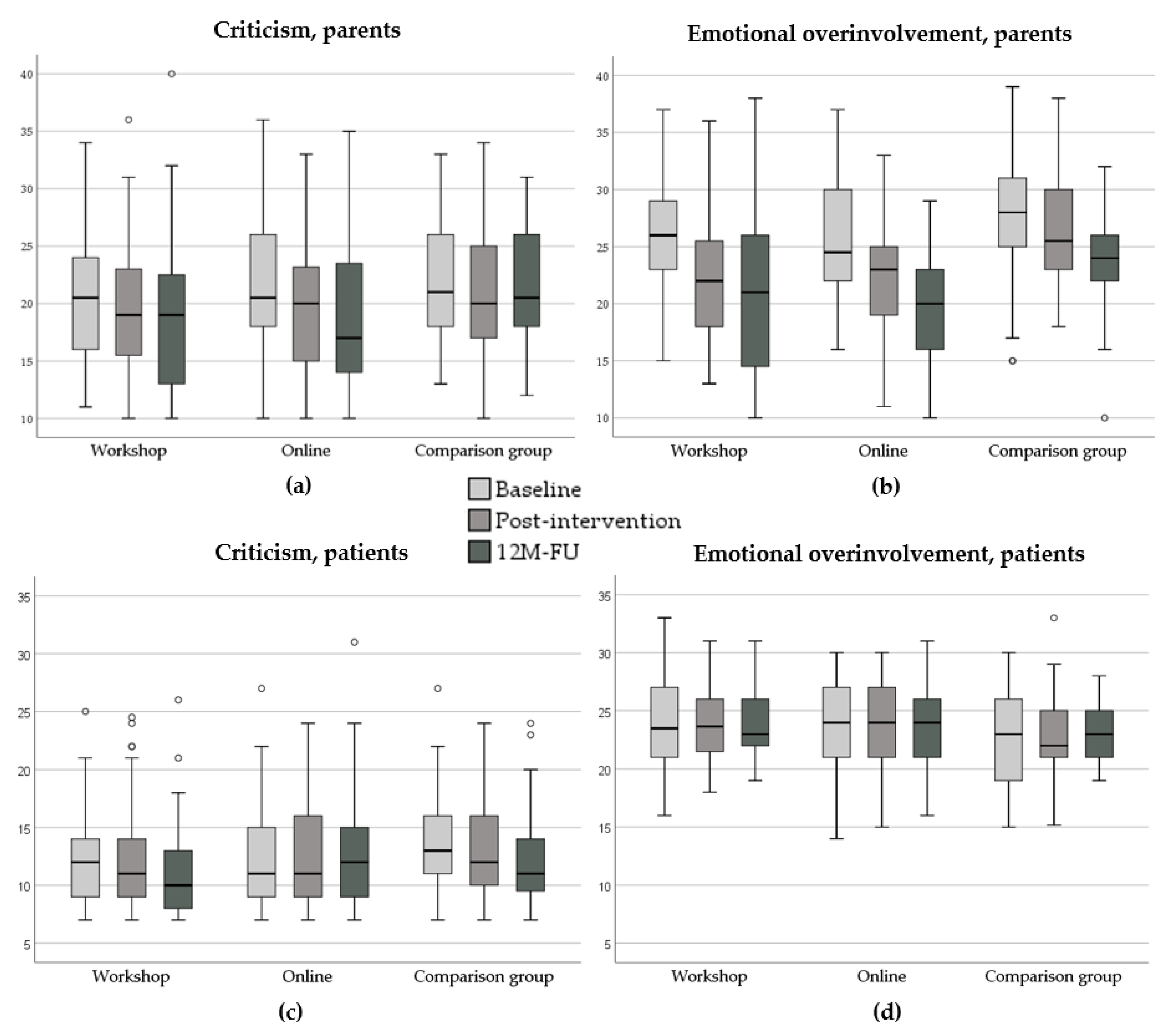



Jcm Free Full Text Reduction Of High Expressed Emotion And Treatment Outcomes In Anorexia Nervosa Caregivers And Adolescents Perspective Html
There is no evidence that families cause disorders such as schizophrenia" (Hooley, 07, p 330) Survival of expressed emotion consistently emphasized relapse and not conditions before diagnosis Evolution of Expressed Emotion Concept Several excellent positive reviews of expressed emotion were published (Kuipers, 1979;Although it is clear that expressed emotion (EE) is associated with the course of schizophrenia, proposed models for this association have struggled to account for the relationship between the EE index of emotional overinvolvement (EOI) and relapseThe expressed emotion (EE) measure is a robust predictor of relapse in schizophrenia At least twelve studies from a range of cultures have now shown this, although the authors of one maintain their findings are the result of confounding factors




Scielo Brasil Emocao Expressa De Familiares E Recaidas Psiquiatricas De Pacientes Com Diagnostico De Esquizofrenia Emocao Expressa De Familiares E Recaidas Psiquiatricas De Pacientes Com Diagnostico De Esquizofrenia




Sociocultural Factors Sz Ppt Download
• Another family variable associated with schizophrenia is a negative emotional climate, or more generally a high degree of expressed emotion (EE) EE is a family communication style that involves criticism, hostility and emotional overinvolvementJun 13, 17 · Effect of caregivers' expressed emotion on the care burden and rehospitalization rate of schizophrenia Xia Wang,1 Qiongni Chen,2 Min Yang1 1Xiangya School of Nursing, 2Nursing Department, Second Xiangya Hospital, Central South University, Changsha, Hunan, People's Republic of China Background This study assessed the effect of expressed emotion (EE) among caregivers of schizophreniaChristian Ewhrudjakpor, Case Studies of Family Expressed Emotion for Persons Living with Schizophrenia in Delta State of NigeriaFallstudien zu von Familienmitgliedern geäußerten Gefühlen bei Menschen mit Schizophrenie im nigerianischen Bundesstaat Delta, European Journal of Mental Health, /EJMH, 4, 2, (), (09)




Abnormal Psychology In A Changing World Eighth Edition Jeffrey S Nevid Spencer A Rathus Beverly Greene Chapter 12 Schizophrenia And Other Psychotic Disorders Ppt Download



Full Article Family Environment Expressed Emotion And Adolescent Self Harm A Review Of Conceptual Empirical Cross Cultural And Clinical Perspectives
Note A great deal of research has examined the role of "expressed emotion" in families that have a member with schizophrenia High levels of expressed emotion (hostility, being overly critical, emotional overinvolvement) in these families have been linked to an increased risk for relapse and rehospitalizationFamily members high in expressed emotion cause relapse in psychological disorders such as schizophrenia, alcoholism, children with learning disabilities, and bipolar disorder The stress from negative criticism and pity becomes a burden on the person with aSchizophrenia Research Volume 55, Issues 1–2 , 1 May 02 , Pages Evaluation of expressed emotion in schizophrenia a comparison of Caucasians and MexicanAmericans




Psychological Explanation Ppt Download
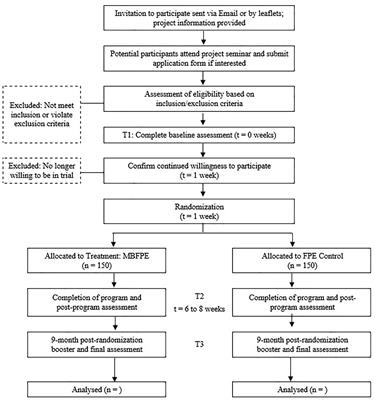



Frontiers A Brief Mindfulness Based Family Psychoeducation Intervention For Chinese Young Adults With First Episode Psychosis A Study Protocol Psychology
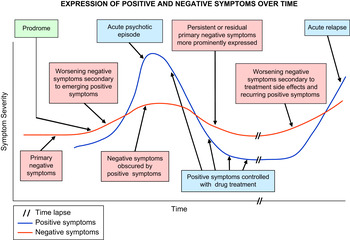



Clinical Evaluation Of Negative Symptoms In Schizophrenia European Psychiatry Cambridge Core




Effect Of Caregivers Expressed Emotion On The Care Burden And Ppa




Pdf Expressed Emotion In Schizophrenia An Overview




Attachment Mentalisation And Expressed Emotion In Carers Of People With Long Term Mental Health Difficulties Bmc Psychiatry Full Text




Expressed Emotion As A Predictor Of The First Psychotic Episode Results Of The European Prediction Of Psychosis Study Sciencedirect




Family Therapy For Schizophrenia In The South African Context Challenges And Pathways To Implementation Psychiatry Mental Disorder




Expressed Emotion And Relapse Of Schizophrenia In Hong Kong




Effect Of Caregivers Expressed Emotion On The Care Burden And Ppa




Schizophrenia Psychological Explanations Diagram Quizlet




Family Therapy For Schizophrenia African Journal Of Psychiatry
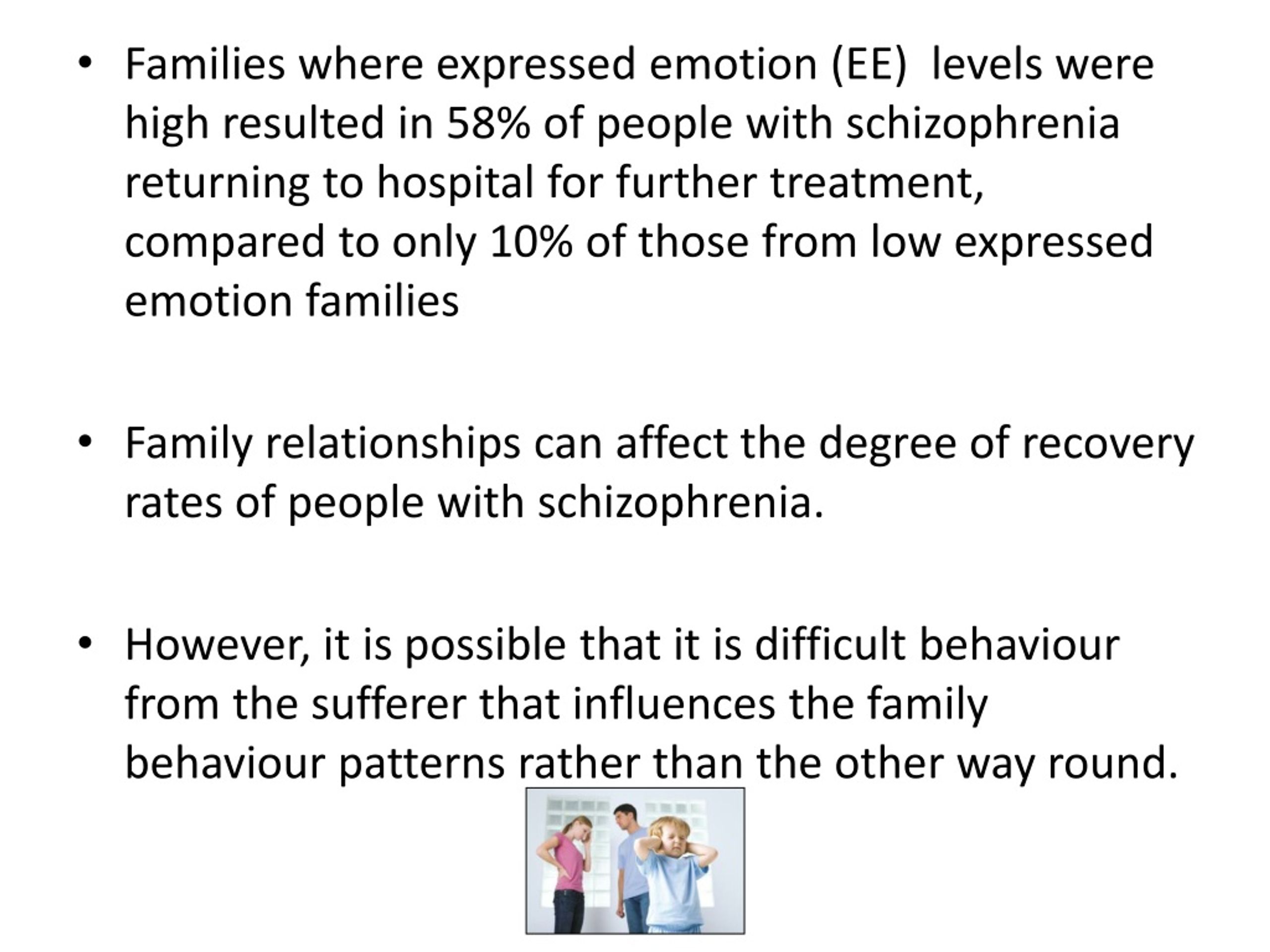



Ppt Psychological Explanations For Schizophrenia 1 Powerpoint Presentation Id




Expressed Emotion And Relapse Of Schizophrenia In Hong Kong
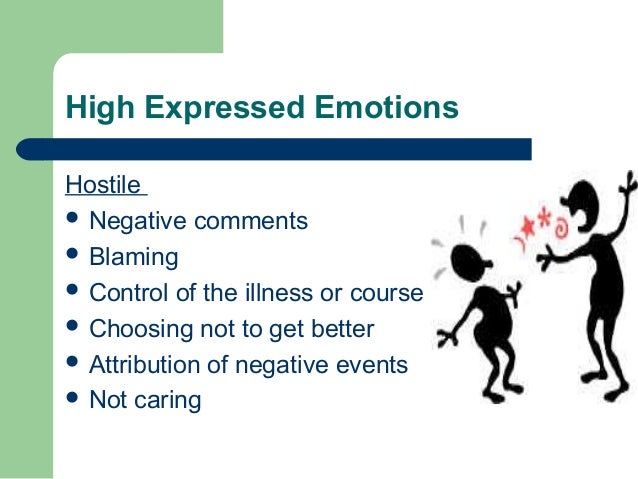



Expressed Emotions
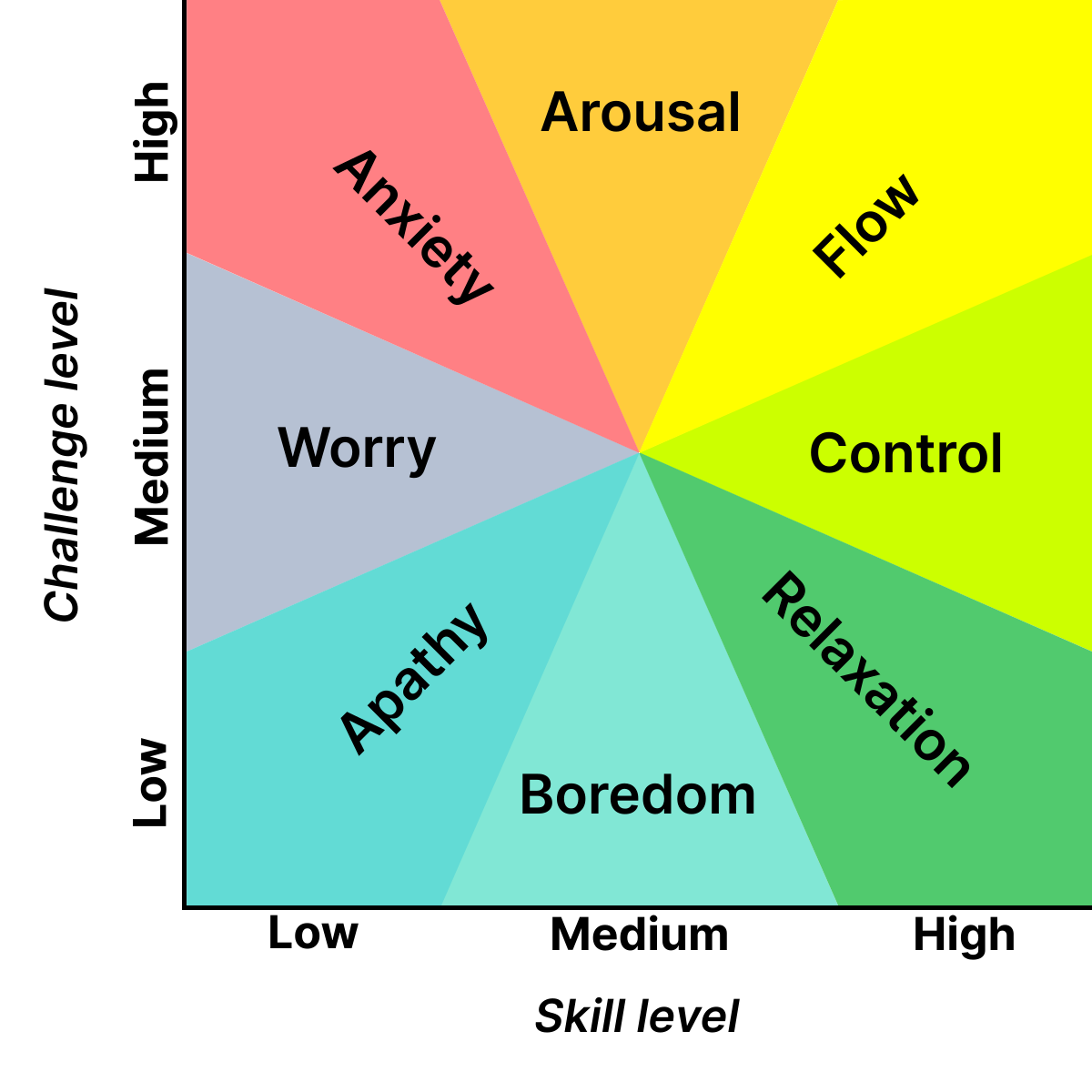



Apathy Wikipedia
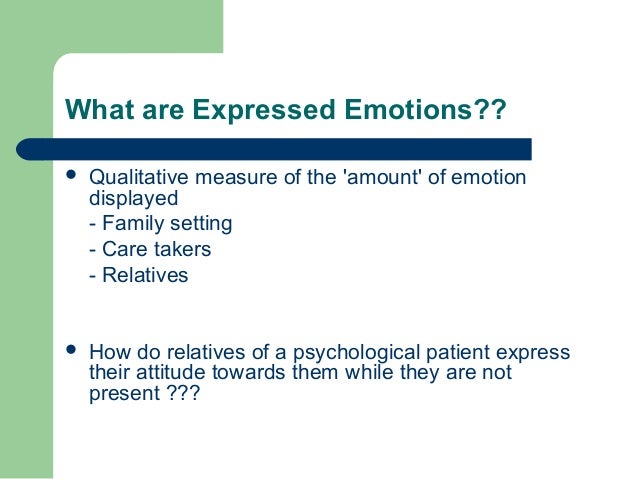



Expressed Emotions




Effect Of Caregivers Expressed Emotion On The Care Burden And Ppa



Martha C Tompson Ph D Publications Pdf Free Download




Bipolar I Disorder And Expressed Emotion Of Families A Cohort Study In Japan
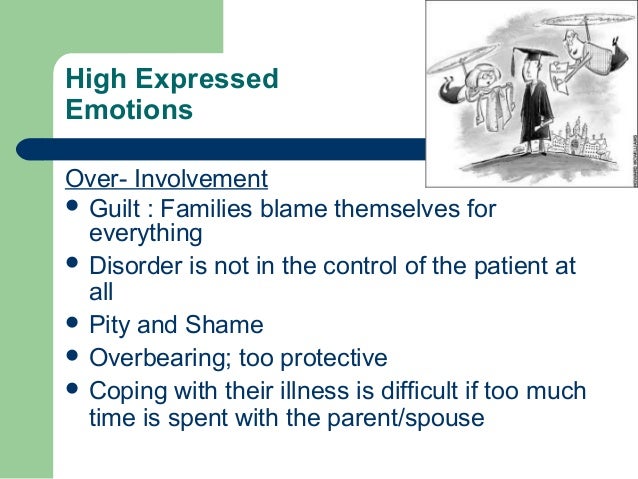



Expressed Emotions




Caregiving Processes And Expressed Emotion In Psychosis A Cross Cultural Meta Analytic Review Sciencedirect



Effectiveness Of Behavioral Family Therapy In People With Schizophrenia A Randomized Controlled Clinical Trial Vidal Gutierrez Salud Mental




Pdf The Relationship Between Expressed Emotion And Wellbeing For Families And Carers Of A Relative With Borderline Personality Disorder




Expressed Emotion And Relapse Of Schizophrenia In Hong Kong
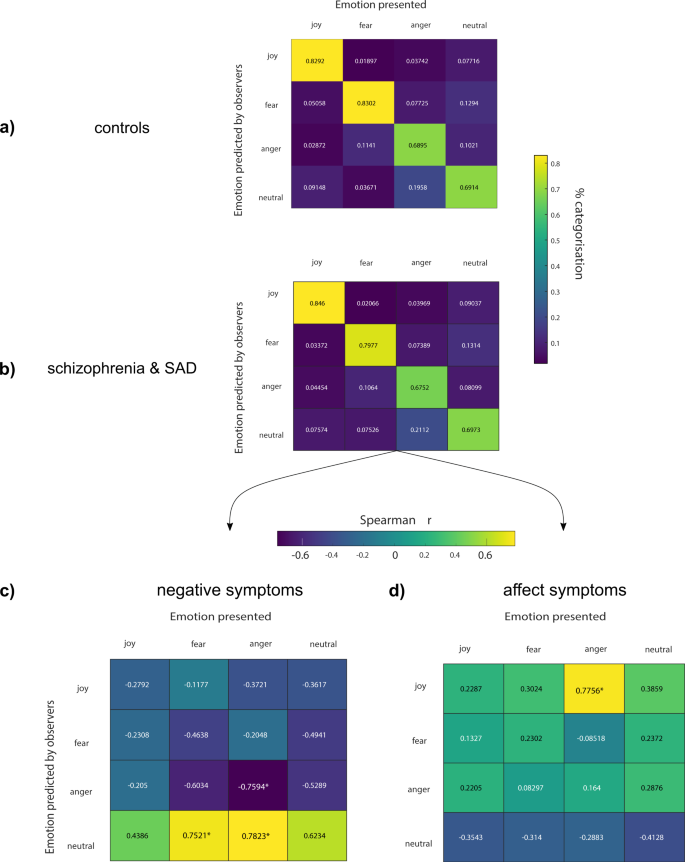



Abnormal Visual Representations Associated With Confusion Of Perceived Facial Expression In Schizophrenia With Social Anxiety Disorder Npj Schizophrenia




Negative Symptoms In Schizophrenia A Review And Clinical Guide For Re Ndt




Pdf The Effects Of Psychoeducation On The Expressed Emotion And Family Functioning Of The Family Members In First Episode Schizophrenia
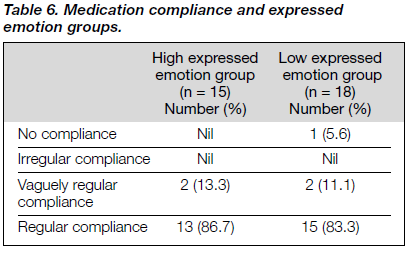



Expressed Emotion And Relapse Of Schizophrenia In Hong Kong
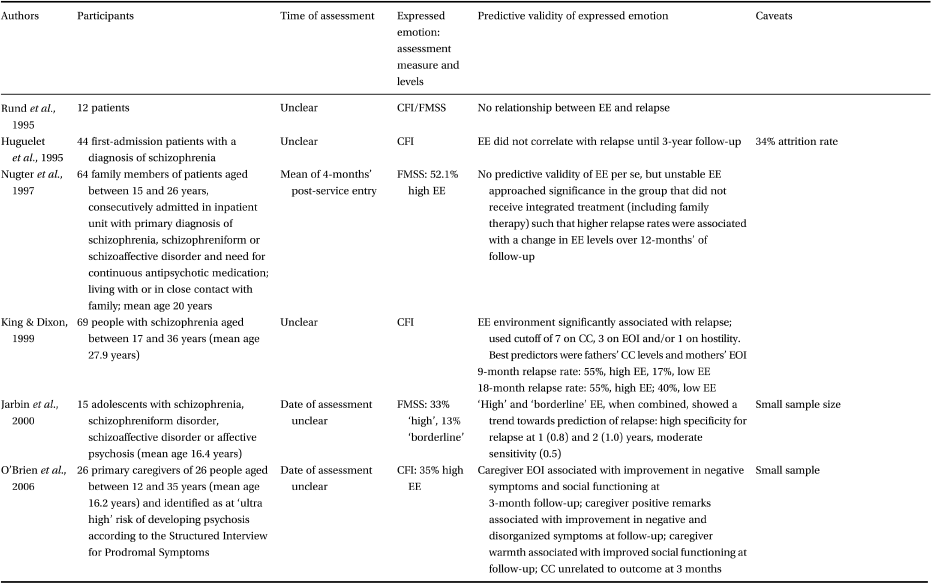



Family Intervention In Early Psychosis Chapter 17 The Recognition And Management Of Early Psychosis




Linear Regression Of Components Of Expressed Emotion Linear Regression Download Table




Pdf Assessment Of Expressed Emotion In Family Members Of Patients With Schizophrenia In A Selected Medical College Hospital Assam
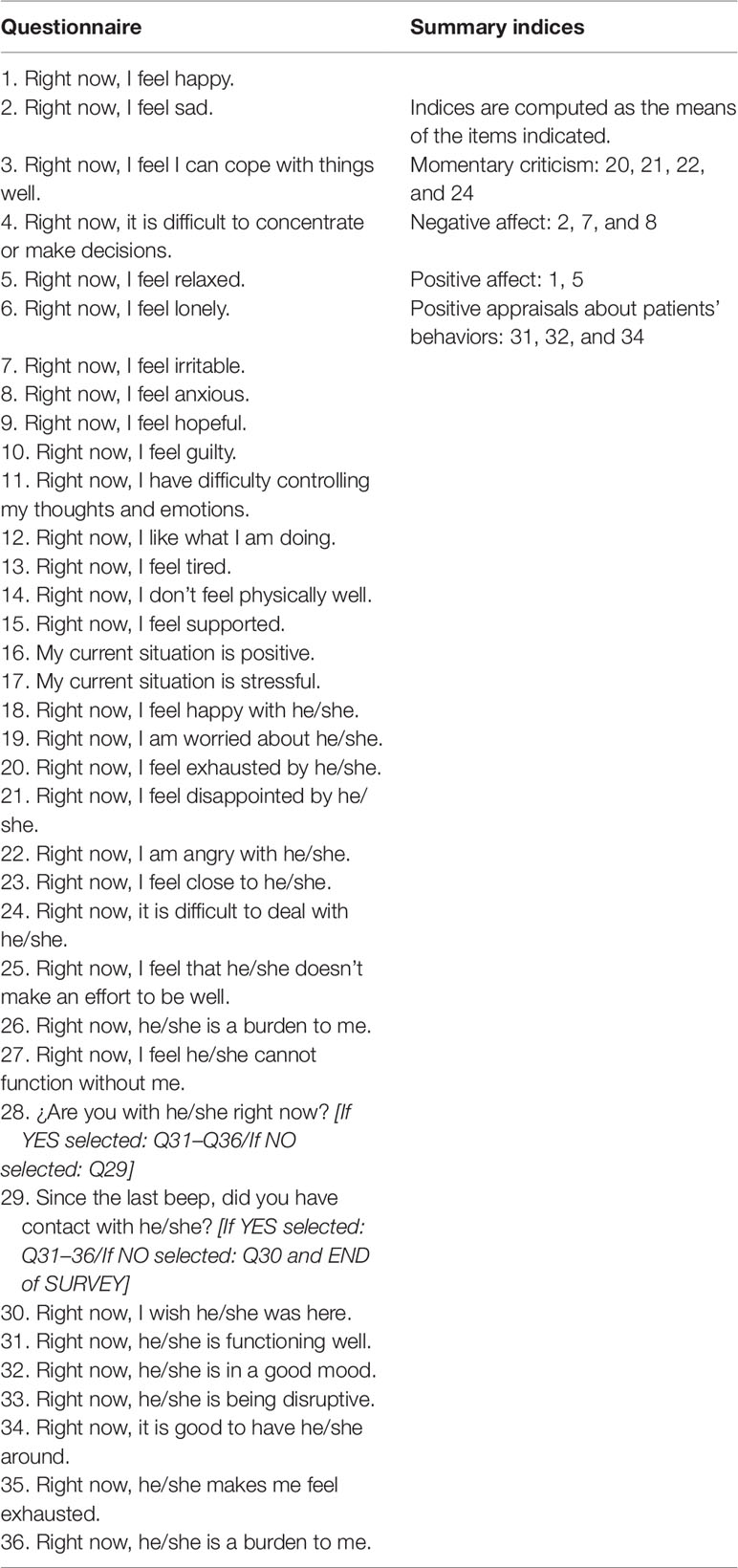



Frontiers Ecological Validity Of Expressed Emotion In Early Psychosis Psychiatry




Pdf Expressed Emotion And Schizophrenia In Italy




Caregiving In Severe Mental Illness The Psychometric Properties Of The Involvement Evaluation Questionnaire In Portugal Topic Of Research Paper In Psychology Download Scholarly Article Pdf And Read For Free On Cyberleninka
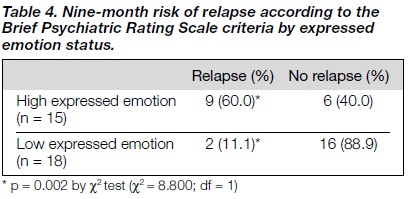



Expressed Emotion And Relapse Of Schizophrenia In Hong Kong




Pdf Measuring Expressed Emotion An Evaluation Of The Shortcuts
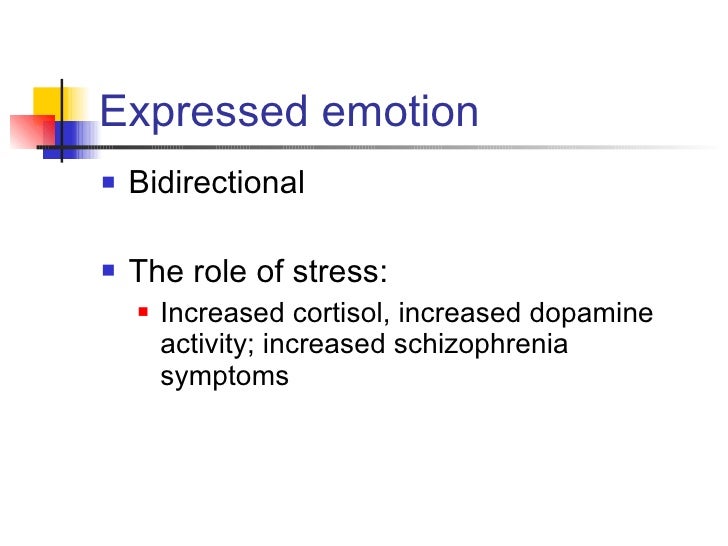



Schizophrenia




Schizophrenia Schizophrenia Clinical Characteristics Of Schizophrenia Issues Surrounding
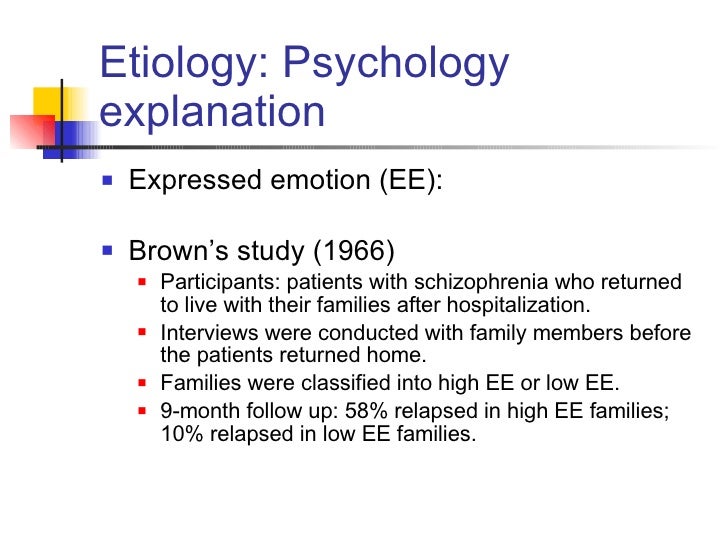



Schizophrenia




Effect Of Caregivers Expressed Emotion On The Care Burden And Ppa




Can Parent Training For Parents With High Levels Of Expressed Emotion Have A Positive Effect On Their Child S Social Anxiety Improvement Sciencedirect




Expressed Emotion Across Cultures Advances In Psychiatric Treatment Cambridge Core
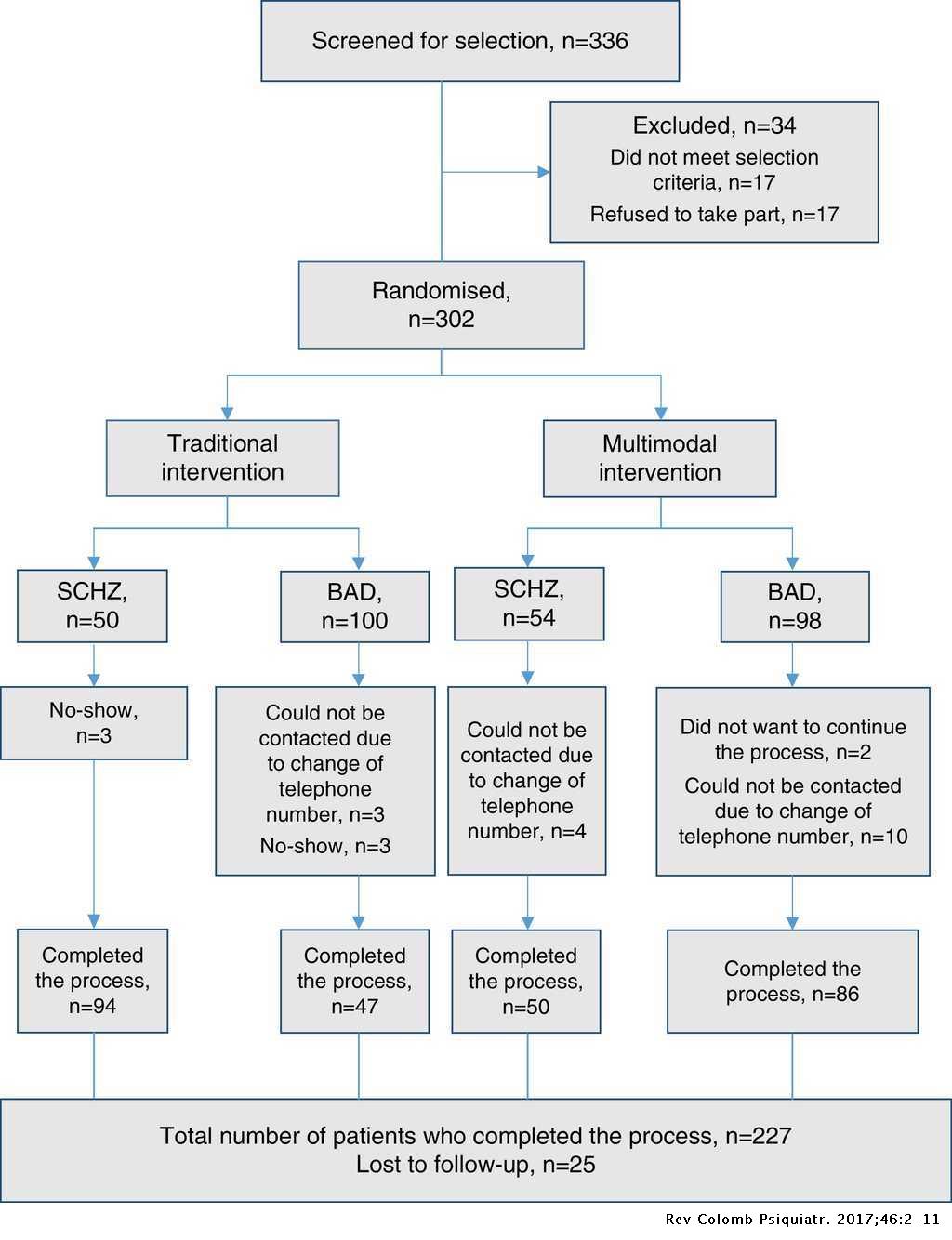



Expressed Emotions Burden And Family Functioning In Schizophrenic And Bipolar I Patients Of A Multimodal Intervention Programme Prisma Revista Colombiana De Psiquiatria English Edition




Guilt Shame And Expressed Emotion In Carers Of People With Long Term Mental Health Difficulties A Systematic Review Topic Of Research Paper In Psychology Download Scholarly Article Pdf And Read For Free




Caregiving Processes And Expressed Emotion In Psychosis A Cross Cultural Meta Analytic Review Sciencedirect




Caregiving Processes And Expressed Emotion In Psychosis A Cross Cultural Meta Analytic Review Sciencedirect
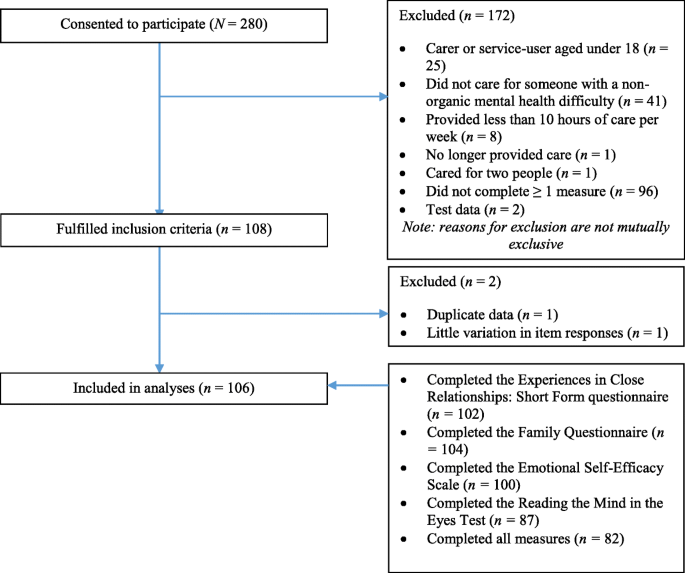



Attachment Mentalisation And Expressed Emotion In Carers Of People With Long Term Mental Health Difficulties Bmc Psychiatry Full Text
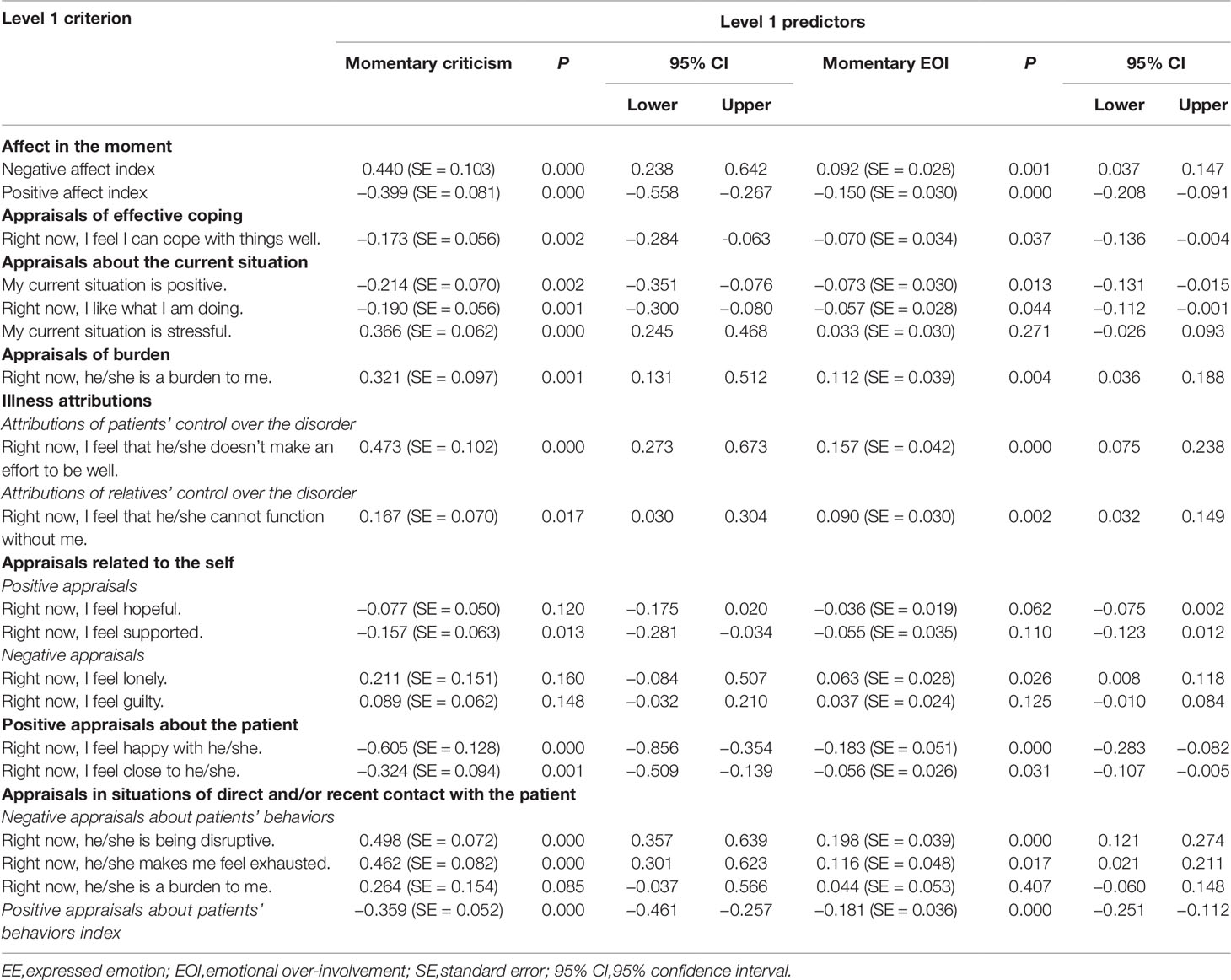



Frontiers Ecological Validity Of Expressed Emotion In Early Psychosis Psychiatry




Expressed Emotion Framework Download Scientific Diagram




Sociocultural Factors Sz Ppt Download
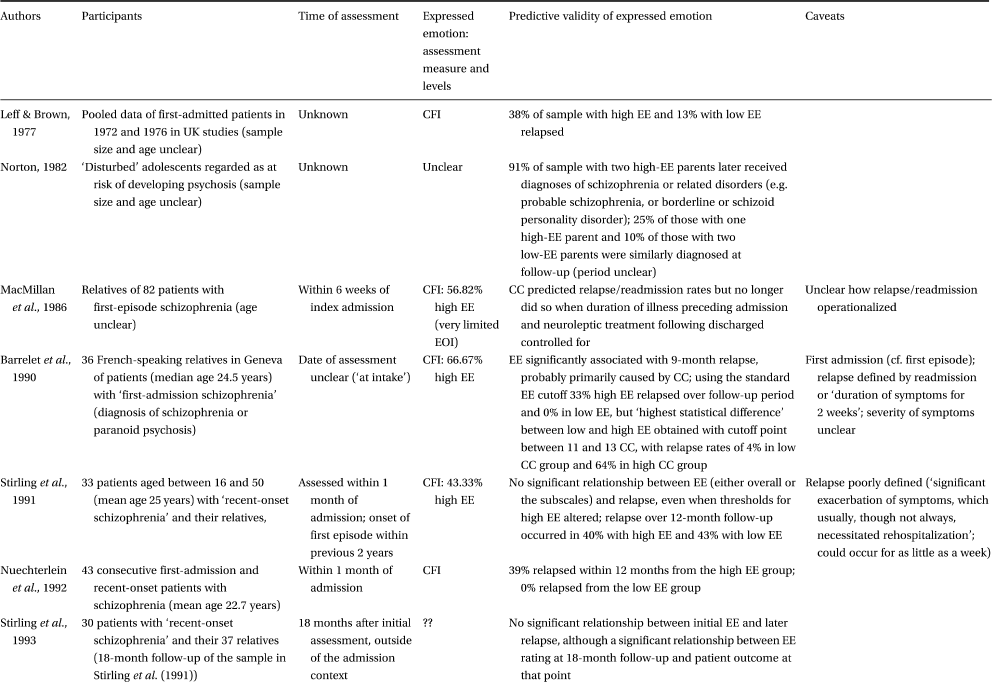



Family Intervention In Early Psychosis Chapter 17 The Recognition And Management Of Early Psychosis




Weak Dorsolateral Prefrontal Response To Social Criticism Predicts Worsened Mood And Symptoms Following Social Conflict In People At Familial Risk For Schizophrenia Sciencedirect




Explanations Of Schizophrenia Ppt Download



Relatives Attachment Anxiety Mediates The Association Between Perceived Loss And Expressed Emotion In Early Psychosis




Figure 2 From A Model Of Family Response To Mental Illness The Role Of The Family In Schizophrenia Semantic Scholar
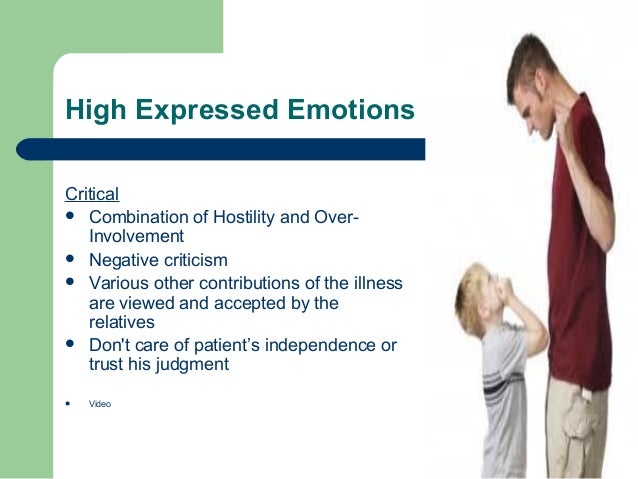



Expressed Emotions




Discussing Expressed Emotions With Schizophrenia Youtube
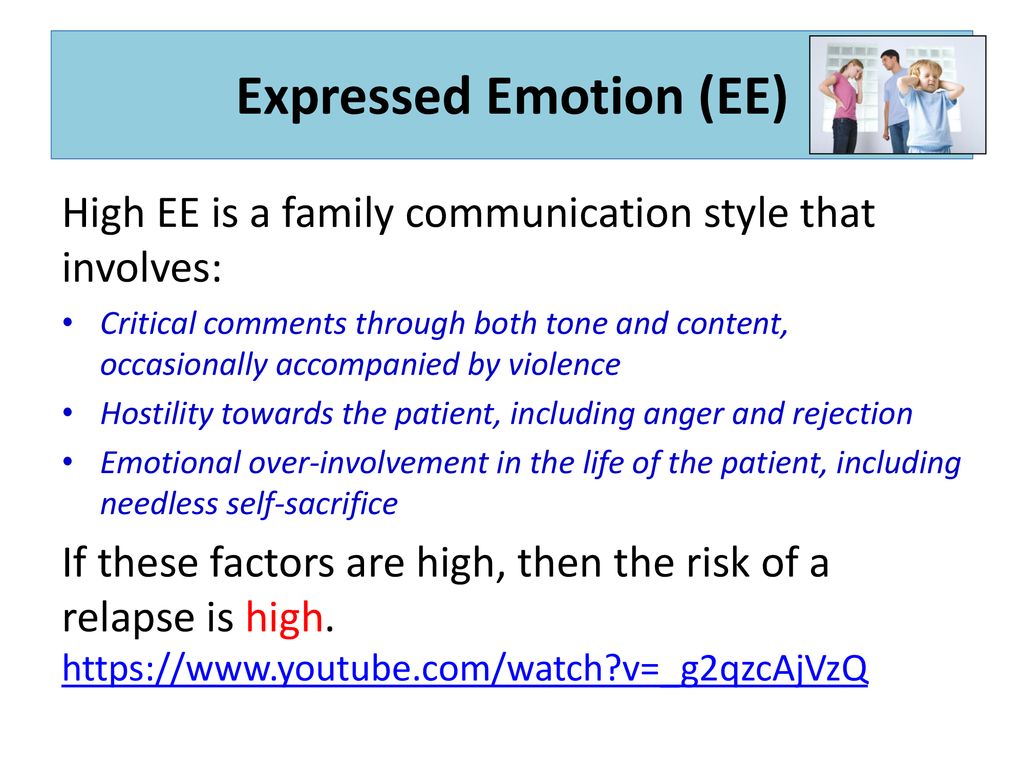



Psychological Explanations For Schizophrenia 1 Ppt Download




Explanations Of Schizophrenia Ppt Download




Psychopathology Paper 3 Schizophrenia What Do You Need



Predictive Factors For Outcome In Adolescents With Anorexia Nervosa To What Extent Does Parental Expressed Emotion Play A Role




Expressed Emotion And Eating Disorders An Updated Review Bentham Science
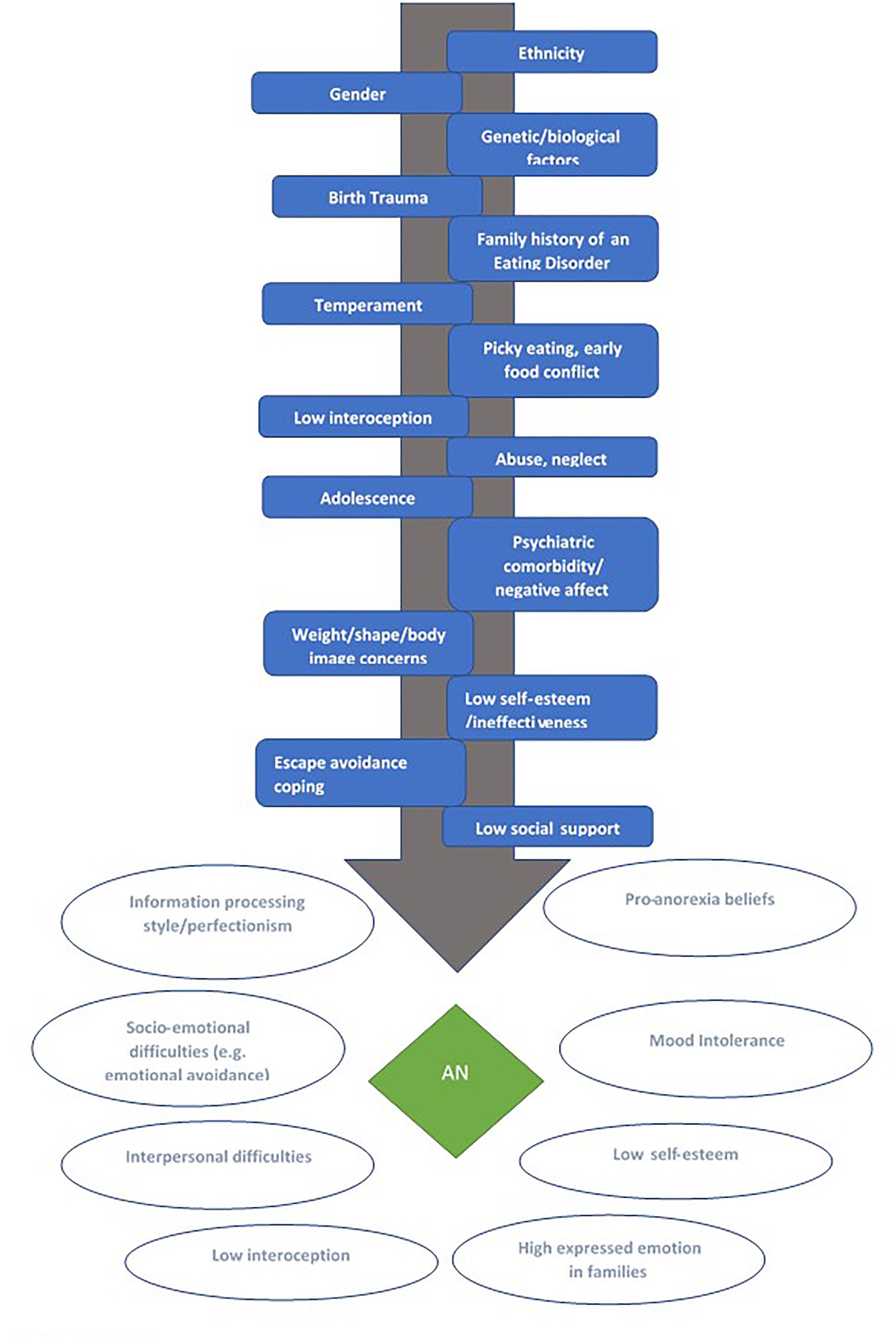



Frontiers Anorexia Nervosa And A Lost Emotional Self A Psychological Formulation Of The Development Maintenance And Treatment Of Anorexia Nervosa Psychology




Pdf Appraisal Of Caregiving Burden Expressed Emotion And Psychological Distress In Families Of People With Eating Disorders A Systematic Review Maria Zabala And Pamela Macdonald Academia Edu




Psychodynamic Approach Schizophrenia Recap Psychodynamic Approach What Is




Pdf Measuring Expressed Emotion An Evaluation Of The Shortcuts Semantic Scholar




Multisensory Integration Of Emotion In Schizophrenic Patients In Multisensory Research Volume 33 Issue 8



Relatives Attachment Anxiety Mediates The Association Between Perceived Loss And Expressed Emotion In Early Psychosis



0 件のコメント:
コメントを投稿